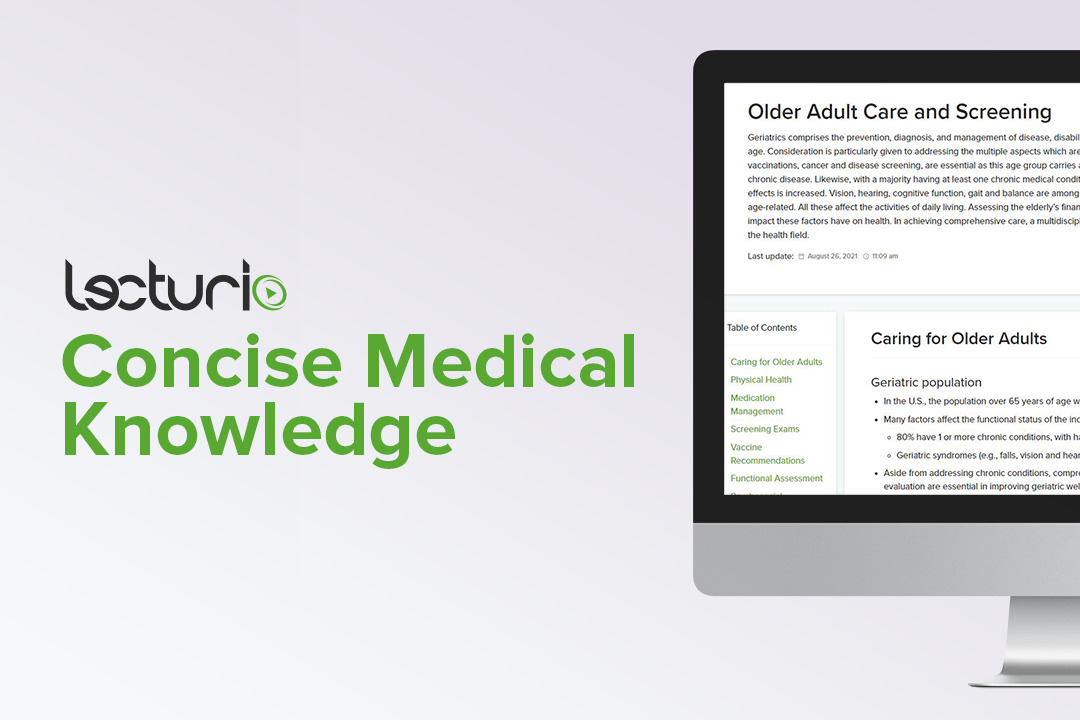Playlist
Show Playlist
Hide Playlist
Medications for Older Adults
-
Slides OlderAdults GeriatricCare.pdf
-
Download Lecture Overview
00:00 So, let's talk about a few of these classes of drugs and things that may come up on your exams and stuff you want to avoid. 00:06 Antipsychotics in and of themselves associated with a higher risk of fall and fracture. 00:10 Also associated with a higher risk of mortality overall. 00:13 So, really should be avoided. 00:15 When they’re absolutely necessary, in cases of dementia with severe agitation, a shared decision-making should be practiced with the family. 00:23 Maybe it keeps the patient in the home as opposed to going to an assisted living facility, but at the same time it is associated with a higher risk of death. 00:32 Glyburide is associated with this long half-life and, therefore, higher rates of hypoglycemia. 00:38 It should be avoided among older adults because there are other options out there if you need a sulfonylurea. 00:44 Benzodiazepines, you know, higher risk of delirium, higher risk of falls. 00:48 Sedative drugs, essentially the same. 00:52 Anticholinergic drugs, anything that is anticholinergic properties is dangerous for older adults. 00:56 It can promote constipation. 00:58 If the vision is blurry due to macular degeneration or cataracts, it can make that worse. 01:02 And also, worst of all, I think causes orthostasis, which may lead to falls as well. 01:09 So, other medications that are kind of on the watch list, you may need to use them. 01:13 Just be careful with them. 01:15 Anticoagulants are underused overall for conditions such as atrial fibrillation. 01:19 If you think about the average risk of stroke in most older adults with atrial fibrillation is about 5% per year. 01:26 The risk of a major bleed as well, lower than that. 01:29 Therefore, the benefit-to-risk ratio is still positive. 01:33 Nonetheless, if patients are falling, you know, every week, that's going to be too much of a risk. 01:41 And therefore, that needs to be corrected before considering or continuing anticoagulant therapy. 01:45 I've mentioned the risk of NSAIDs with GI bleeding, renal impairment and possible cardiovascular risk. 01:52 And then antihypertensive drugs, the systolic blood pressure per JNC 8 guidelines may be allowed increase to 150 among older adults above age 60. 02:04 I generally will try to be a little bit more strict with my control. 02:08 But certainly above age 75 or 80, the BP can become a liability when it becomes too low, and too low might be like 110. 02:17 So, therefore, something to consider. 02:19 Patients may need a down titration of their antihypertensive drugs as they move into that category above 75 or 80 years. 02:28 Hopefully, that was a helpful introduction to the care of older adults. 02:32 Thanks very much for your attention.
About the Lecture
The lecture Medications for Older Adults by Charles Vega, MD is from the course Geriatric Care.
Included Quiz Questions
Which of the following medications has a higher risk of hypoglycemia?
- Glyburide
- Metformin
- Empagliflozin
- Rosiglitazone
- Exenatide
What is the preferred initial management of neuropsychiatric symptoms in an elderly patient with dementia?
- Non-pharmacological behavior-modification interventions
- Short-acting benzodiazepines
- Long-acting antipsychotics
- Anticonvulsants
- Selective serotonin reuptake inhibitors
Customer reviews
5,0 of 5 stars
| 5 Stars |
|
5 |
| 4 Stars |
|
0 |
| 3 Stars |
|
0 |
| 2 Stars |
|
0 |
| 1 Star |
|
0 |




